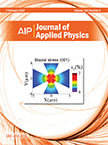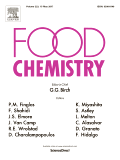
Last month, a publisher announced that one of its editors had resigned, following accusations he’d asked authors to cite particular papers, boosting his profile and that of journals where he worked. The publisher declined to name the editor. But when an anonymous report began circulating about the incident, the publisher named the researcher: Artemi Cerdà, based at the Universitat de València.
Cerdà has since resigned from other journals, but hadn’t made any public statements that we could find about the incident — until now.
We spoke with Cerdà, who asserted repeatedly that he had not forced authors to add citations to their papers, and was being unfairly accused by journals who had to explain why their impact factors had risen dramatically:
Continue reading Ousted editor speaks: I did not manipulate citations

 After an international group of physicists agreed that the findings of their 2015 paper were in doubt, they simply couldn’t agree on how to explain what went wrong. Apparently tired of waiting, the journal retracted the paper anyway.
After an international group of physicists agreed that the findings of their 2015 paper were in doubt, they simply couldn’t agree on how to explain what went wrong. Apparently tired of waiting, the journal retracted the paper anyway. A journal has retracted a 2012 paper after the last author was unable to provide material to support the results presented in multiple figures.
A journal has retracted a 2012 paper after the last author was unable to provide material to support the results presented in multiple figures. Journals have retracted two papers after they were flagged by a pseudonymous blogger, who suspected all had copied text from other sources.
Journals have retracted two papers after they were flagged by a pseudonymous blogger, who suspected all had copied text from other sources. Following a journal probe and questions on PubPeer about their work, authors in Spain have issued four corrections, citing missing raw data for experiments conducted more than 10 years ago.
Following a journal probe and questions on PubPeer about their work, authors in Spain have issued four corrections, citing missing raw data for experiments conducted more than 10 years ago.
